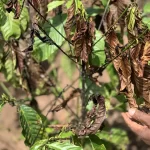Coffee, often referred to as “liquid gold,” has been an integral part of global culture for centuries. While coffee has its roots in the ancient coffee forests of Ethiopia, it has since spread across the world, finding a unique home in Uganda. Nestled in the heart of East Africa, Uganda has emerged as one of the continent’s most promising coffee producers. In this article, we will take a deep dive into Uganda’s vibrant coffee culture, exploring its history, production, unique flavors, and the socioeconomic impact of this beloved beverage.
Historical Roots
Uganda’s coffee story is intertwined with its colonial past. Coffee was introduced to Uganda in the late 19th century by British colonialists. Its cultivation started in the central region, which boasts fertile soil and a favorable climate for coffee farming. Over time, coffee plantations spread throughout the country, and it became a key cash crop. Today, Uganda is one of Africa’s largest coffee producers, and its beans are renowned for their quality and unique flavor profiles.
Diverse Coffee Varieties
Uganda is blessed with diverse coffee varieties that cater to different tastes and preferences. The most prominent among these are Robusta and Arabica beans. Robusta coffee, known for its robust and bold flavor, thrives in the lowland areas of Uganda. On the other hand, Arabica coffee, celebrated for its nuanced flavors and aromatic notes, is mainly cultivated in the highlands of Uganda, such as the slopes of Mount Elgon and the Rwenzori Mountains. The combination of altitude, soil, and climate in these regions gives Ugandan coffee a distinct taste that coffee enthusiasts around the world cherish.
Unique Flavor Profiles
Ugandan coffee is celebrated for its unique flavor profiles. Robusta beans from Uganda are renowned for their earthy, chocolatey undertones with a hint of nuttiness. They are favored for their strong, full-bodied taste, making them ideal for espresso blends and instant coffee. In contrast, Ugandan Arabica beans are known for their bright acidity, floral notes, and fruitiness. These beans are prized by specialty coffee roasters for their versatility in creating a wide range of complex and aromatic brews.
Sustainable Farming Practices
Uganda has made significant strides in promoting sustainable coffee farming practices. Many coffee farmers in Uganda have adopted organic farming methods, reducing the use of pesticides and fertilizers. Additionally, Fair Trade and Rainforest Alliance certifications are becoming more common, ensuring fair wages for farmers and promoting environmental conservation. The focus on sustainability not only benefits the environment but also contributes to the long-term viability of Uganda’s coffee industry.
Socioeconomic Impact
Coffee plays a vital role in Uganda’s economy and the livelihoods of millions of people. It is estimated that over 1.7 million households in Uganda are engaged in coffee production, making it a crucial source of income for rural communities. The coffee sector provides employment opportunities, supports infrastructure development, and fosters economic growth. Moreover, coffee farming has empowered many Ugandan women, enabling them to actively participate in the industry and improve their families’ quality of life.
Cultural Significance
Coffee is more than just a beverage in Uganda; it is a cultural cornerstone. The traditional Ugandan coffee ceremony is a time-honored ritual that symbolizes hospitality and friendship. During these ceremonies, coffee is roasted, ground, and brewed while family and friends gather to share stories and laughter. It is a symbol of unity and community, transcending generations and fostering a sense of togetherness.
Conclusion
Uganda’s coffee industry is not just about beans; it’s about a rich and vibrant culture deeply rooted in history, tradition, and the livelihoods of millions. From the fertile slopes of Mount Elgon to the bustling coffee markets of Kampala, Uganda’s coffee journey is a testament to the nation’s resilience and determination. As the world continues to savor the flavors of Ugandan coffee, let us also appreciate the dedication of the hardworking farmers who bring this exquisite brew to our cups. Uganda’s coffee renaissance is a story of growth, sustainability, and the enduring power of coffee to connect people across the globe.







